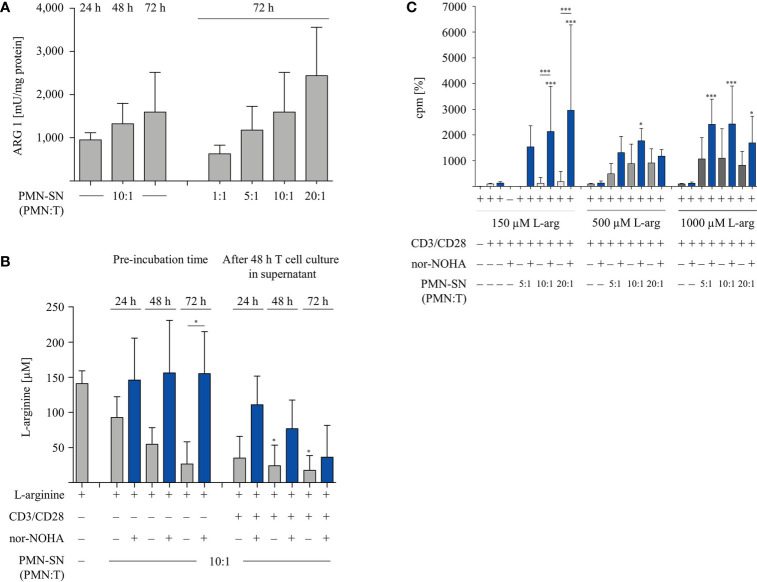Figure 3.
Arginine availability correlates with hyperactivation of T cell proliferation. Human T cells and polymorphonuclear neutrophil granulocytes (PMN) were isolated from whole blood of healthy donors. PMN were incubated in cell culture medium for 24 h, 48 h, or 72 h in the presence or absence of 1 mM nor-NOHA. (A) Arginase activity was determined in PMN-supernatants (SN) at different PMN concentrations corresponding to the indicated PMN:T ratios in the following T cell activation assays (n=4). (B) T cells were stimulated with anti-CD3/anti-CD28-tagged beads for 48 h in the different PMN-SN. L-arginine concentrations were quantified by high performance liquid chromatography in the PMN-SN before and after 48 h of T cell activation. Arginine values of normal cell culture medium were set as 100% (n=3 independent experiments). (C) PMN were incubated in cell culture medium containing 150 µM, 500 µM, or 1,000 µM L-arginine for 72 h in the presence or absence of 1 mM nor-NOHA. T cells were then stimulated with anti-CD3/anti-CD28-tagged beads in the PMN-SN for 48 h. T cell proliferation was determined by [3H]thymidine incorporation over 16 h and values of control stimulated cells in the presence of arginine were set as 100% (n=4 independent experiments). Unless otherwise stated, statistical analysis refers to the control conditions of activated T cells in the presence of L-arginine and nor-NOHA. Statistical calculations were performed with one-way ANOVA and Tukey´s post hoc test (***p < 0.001, *p < 0.05).

